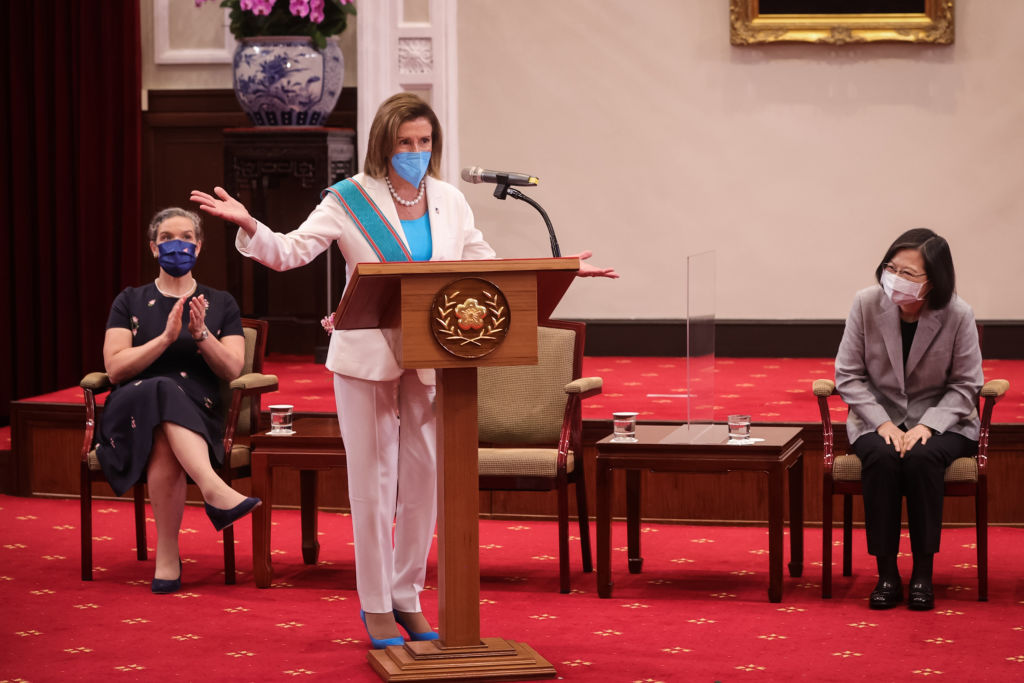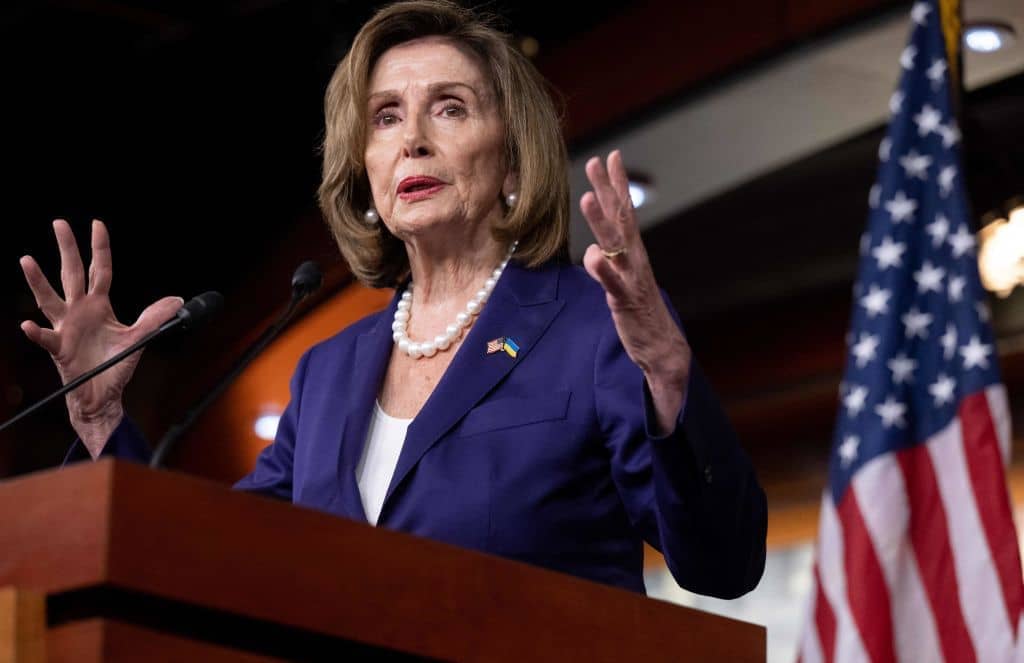The current visit by US Speaker Nancy Pelosi to Taiwan makes her the most senior US politician to travel to the island since her predecessor Newt Gingrich in 1997. The reaction by Beijing has been furious from the moment the story leaked, with President Xi reportedly telling President Biden last week that those who ‘play with fire’ over Taiwan will get burned.
With these threats in mind, and with relations between the superpowers at a low not seen for decades, there are severe risks at play. The American political commentator Thomas Friedman has even gone as far as to say that her actions ‘might start World War III’. But will her visit really tip the US, and therefore potentially its allies, into some kind of conflict with China?
First of all, it’s important to understand why Pelosi is making the trip. According to the Speaker herself, it is to honour ‘America’s unwavering commitment to supporting Taiwan’s vibrant democracy’. In addition, she said, her visit is to ‘reaffirm our support for our partner and promote our shared interests, including advancing a free and open Indo-Pacific region’.
There is of course a domestic audience to consider too, ahead of mid-term elections this November when the Democrats are expected to lose seats. With China being one of the few issues in American politics to receive bipartisan support, being tough on Beijing is seen as a vote winner. Despite this possible electoral advantage, President Biden – a fellow Democrat – has reportedly been trying to persuade Pelosi to abandon her trip in the last few weeks for fear of deepening the chasm between Washington and Beijing. But as plans for her trip became public, and threats were made by senior Chinese diplomats of ‘grave consequences’ should the trip go ahead, it became hard for Washington to countenance Pelosi not going for fear of looking weak.
The reason China cares so much is that Xi, and the CCP, have staked their legacies on reunifying with Taiwan
The reason China cares so much is that Xi, and by extension the Chinese Communist Party (CCP), have staked their legacies on reunifying with Taiwan. The Speaker’s visit threatens this in two ways. When Pelosi stated that America’s ‘determination to preserve democracy here in Taiwan… remains iron clad’ this gives the impression that the US would indeed fight to keep the island out of Beijing’s hands, which isn’t good news for Chinese military planners. In addition, remarks like this are likely to encourage those in Taiwan seeking full independence from China, a state of affairs that Beijing has repeatedly said is unacceptable.
There is also the timing of the visit, falling as it does a matter of months before China’s 20th National Congress. This congress is vital for Xi as he hopes to use it to cement his grip on the leadership of the country. Perceived American aggravation of this kind can be (and probably is) seen as a personal affront to a president who has been so vocal about reunification.

Finally, there is also the Speaker herself that Beijing objects to, as this is not the first time she has ruffled Chinese feathers. In 1991 Pelosi visited Tiananmen Square and unfurled a small banner that honoured the demonstrators who had been killed there just two years before. She also called for a boycott of the Beijing Winter Olympics in 2021 over the country’s human rights record.
The question is what will Beijing do in response? The first measures have been taken, with China banning imports from 35 Taiwanese manufacturers of biscuits and pastries, plus the export of construction sand to the island in line with unspecified legal provisions. The People’s Liberation Army has also announced live fire exercises starting tomorrow in six swathes of water surrounding the island, which Taipei has said amounts to a blockade.
In reality, these demonstrations of force are unlikely to trigger actual conflict. The main reason for this is that President Xi has the congress to get through this autumn, and he wants nothing to distract his chances of extending his rule.
The problem is that military displays by China have a record of getting out of hand. In 2001, for example, a Chinese fighter pilot flew too close to a US military plane and died in the ensuing crash, sparking an international crisis. In recent years ships from the People’s Liberation Army, which are led by both a maritime captain and a political commissar, have come very close to colliding with American vessels in the South China Sea, another contested body of water. In a febrile, nationalistic environment, mistakes of this kind are more likely as individuals feel more emboldened to ‘stick it’ to the opposition – with the potential for dramatic escalation afterwards.
In the 1950s and 60s, as the US actively sought to protect Taiwan from invasion by Chairman Mao’s China, Chinese officials issued hundreds of final warnings at protest over American fighters patrolling the Taiwan Strait, but without doing anything to back them up. ‘China’s final warning’ subsequently entered the Russian language as an ironic proverb to describe fruitless warnings.
China today is very different: a confident, economically successful country with the world’s largest fleet. But given Xi’s current political issues at home, Pelosi’s visit is unlikely to unleash the Third World War, notwithstanding some kind of accidental incident.
This does not mean that conflict of some kind is impossible sometime in the future given the importance Beijing places on the island. Once Xi’s position is entrenched this autumn, we can expect to see Chinese threats about further American interventions in Taiwan become much fuller.






Comments